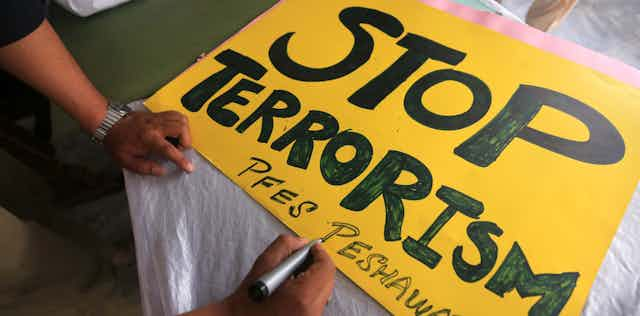Two of the nine suicide bombers in Sri Lanka who killed more than 250 people on Easter Sunday were the sons of a rich and famous spice trader in the country.
One of them had studied aerospace engineering at Kingston University, England, but did not complete his degree and then continued his studies in Australia.
Islamic State (ISIS) has claimed responsibility for the attacks. Some experts said the attacks were a response to the far-right terrorist attack on two mosques in Christchurch, New Zealand.
But what motivated these young people from middle-class to upper-middle-class families?
My research explains this can happen because the values of radicalism fulfil the need of these young people to find meaning in their lives. And this process of radicalisation occurs gradually.
Understanding the motives of the perpetrators
Although terrorist groups are becoming increasingly varied in their strategies and ideologies, they share similar psychological motives, which develop through the same stages of the radicalisation process.
They commit violence based on a motive to find meaning in their lives. Unfortunately, they find this meaning by being part of certain groups that commit violence.
At first, these lost souls, most of them young, are feeling failed and frustrated. They feel like they have lost their meaning in life. Then, when they see what is happening in the world, where Muslims in various countries suffer assaults and oppression, they feel like they have found a mission to defend Muslims and to claim revenge. By taking this action, they feel they have rediscovered their meaning in life.
Religion is the most powerful source of narrative in giving meaning in life to individuals. This is because religions meet the needs of individuals to have a meaningful life while at the same time giving assurance of life after death.
When a religion-based radical group offers these promises, any lost soul, either rich or poor, educated or not, becomes easy prey. This is because when an individual losing his/her significance joins a radical group, he or she will tend to adopt the values of the group as a whole, without any alternative. This is what makes them radical.
The perpetrators of the Sri Lankan bombings were motivated to seek their identities by defending Muslims. They felt that Islamic communities were under threat, attacked and oppressed by the West and Christians.
They were individuals who had adopted a single goal – the enforcement of Islamic law as the only law in the world – to end oppression against Muslims. They believed jihad was the only way to achieve their goals.
Their ideology was reinforced by a narrative induced by the radical group leaders: civilian victims can be morally justified to achieve their sacred goals. They believe they are striving to achieve a higher goal of fighting for a better world order for all humanity.
That’s why people who come from wealthy families are also willing to sacrifice themselves. Two Sri Lankan bombers are willing to be martyrs for their cause because they act on the basis of group ideological values, which they believe will help them not only achieve the higher goal for Islam but also give them meaning in life.
Transnational terrorism
The Sri Lankan bombings are not unexpected. Senior antiterrorism researcher Bruce Hoffman explains suicide bomb attacks in Sri Lanka are the result of a long radicalisation process through the presence of National Towheed Jamaat (NTJ), a local group that supports the agenda of jihad.
Their presence has troubled moderate Sri Lankan Islamic communities. The NTJ requires members of the group to be present in the mosque and to force the implementation of strict Islamic laws over Sri Lankan laws. It has managed to radicalise a small part of the Muslim community in Sri Lanka.
Another terrorism researcher, Arie Kruglanski, a professor of social psychology at Maryland University in the United States, added that the slow but steady process of radicalisation in Sri Lanka gained momentum after ISIS’s defeat in Syria and its efforts to penetrate Southeast Asia.
Even though the ISIS army in Syria has been destroyed, its ideology survives.
Through online media, young people embrace ISIS ideology. They include young people in the Southeast Asia region. Indonesian and Malaysian youth have become targets of ISIS recruitment.
An anthropologist at Oxford University, England, Scott Atran explains transnational terrorism as a result of extreme and persuasive propaganda of violence and intimidation.
The Sri Lanka attacks are a result of the strengthening of right-wing ideology that adopts the ISIS model.
Anyone can be a target
I recalled my conversation last April with a man identified as UP, one of those convicted of the 2002 Bali bomb attacks. UP was serving his prison sentence in Porong Sidoarjo, East Java.
He could not hide his anger when he said the authorities had asked for his opinion of the Sri Lankan church bombings.
“Why wasn’t I asked about the massacre of Muslims in a mosque in New Zealand, but I was asked about the bombings in Sri Lankan churches instead? Where was their empathy?”
UP’s expression confirms that religious sentiments can arouse anger and solidarity among Muslims everywhere.
Las Asimi Lumban Gaol translated this article from Indonesian.


